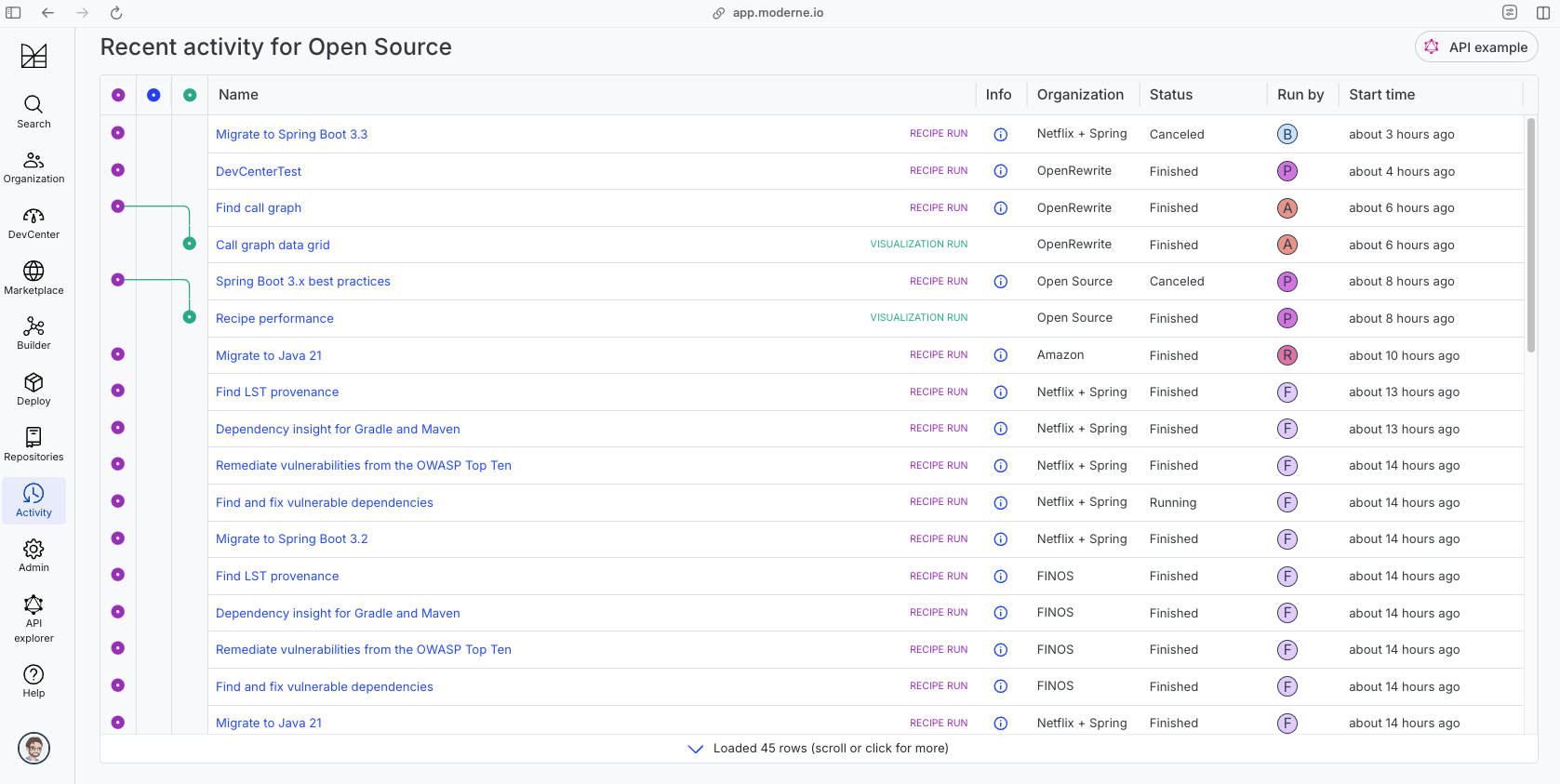Use SLF4J Parameterized Logging
In this guide we'll look at using OpenRewrite to automatically refactor logging statements to take advantage of performance improvements offered by using slf4j parameterized logging over String concatenation.
Example Configuration
The ParameterizedLogging recipe has no required configuration options and can be activated directly after taking a dependency on rewrite-logging-frameworks in your build file:
- Gradle
- Maven
plugins {
id("org.openrewrite.rewrite") version("7.26.0")
}
rewrite {
activeRecipe("org.openrewrite.java.logging.slf4j.ParameterizedLogging")
}
repositories {
mavenCentral()
}
dependencies {
rewrite(platform("org.openrewrite.recipe:rewrite-recipe-bom:latest.release"))
rewrite("org.openrewrite.recipe:rewrite-logging-frameworks")
}
<project>
<build>
<plugins>
<plugin>
<groupId>org.openrewrite.maven</groupId>
<artifactId>rewrite-maven-plugin</artifactId>
<version>6.29.0</version>
<configuration>
<activeRecipes>
<recipe>org.openrewrite.java.logging.slf4j.ParameterizedLogging</recipe>
</activeRecipes>
</configuration>
<dependencies>
<dependency>
<groupId>org.openrewrite.recipe</groupId>
<artifactId>rewrite-logging-frameworks</artifactId>
<version>3.23.0</version>
</dependency>
</dependencies>
</plugin>
</plugins>
</build>
</project>
At this point, you're ready to execute the migration by running mvn rewrite:run or gradlew rewriteRun. After running the migration you can inspect the results with git diff (or equivalent), manually fix anything that wasn't able to be migrated automatically, and commit the results.
For the full list of changes, see the recipe's reference documentation.
- Example Class (Before)
- Example Class (After)
import org.slf4j.Logger;
import org.slf4j.LoggerFactory;
class Example {
Logger logger = LoggerFactory.getLogger(Example.class);
void method(String name, double percent) {
logger.debug("Process [" + name + "] is at [" + percent * 100 + "%]");
}
void asInteger(String numberString) {
try {
Integer i = Integer.valueOf(numberString);
} catch (NumberFormatException ex) {
logger.warn("some big error: " + ex.getMessage(), ex);
}
}
}
import org.slf4j.Logger;
import org.slf4j.LoggerFactory;
class Example {
Logger logger = LoggerFactory.getLogger(Example.class);
void method(String name, double percent) {
logger.debug("Process [{}] is at [{}%]", name, percent * 100);
}
void asInteger(String numberString) {
try {
Integer i = Integer.valueOf(numberString);
} catch (NumberFormatException ex) {
logger.warn("some big error: {}", ex.getMessage(), ex);
}
}
}
Running this recipe with the Moderne CLI
You will need to have configured the Moderne CLI on your machine before you can run the following command:
mod run . --recipe org.openrewrite.java.logging.slf4j.ParameterizedLogging
If the recipe is not available locally, then you can install it using:
mod config recipes jar install org.openrewrite.recipe:rewrite-logging-frameworks:3.23.0
See how this recipe works across multiple open-source repositories
Run this recipe on OSS repos at scale with the Moderne SaaS.

The community edition of the Moderne platform enables you to easily run recipes across thousands of open-source repositories.
Please contact Moderne for more information about safely running the recipes on your own codebase in a private SaaS.